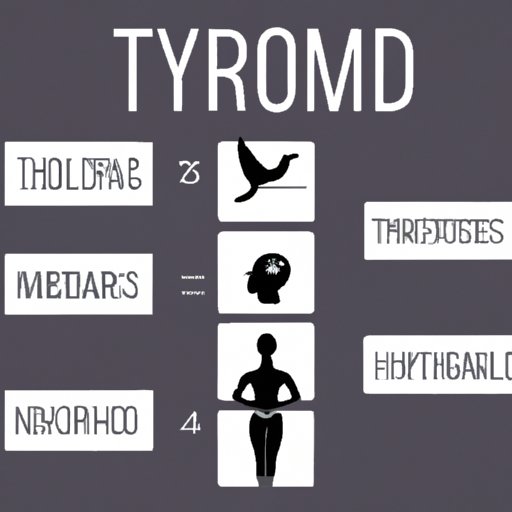
How to Lose Weight with Hypothyroidism: Overcoming the Challenges
Hypothyroidism is a condition in which the thyroid gland does not produce enough hormone, leading to a variety of symptoms such as fatigue, weight gain, and difficulty losing weight. Losing weight with hypothyroidism can be challenging due to the slow metabolism that accompanies this condition. However, with proper medical advice and a few lifestyle changes, it is possible to shed the excess pounds and improve overall health. In this article, we will explore how to lose weight with hypothyroidism and overcome the challenges that come with it.
Importance of Medical Advice
Before beginning any weight loss plan, it is crucial to consult with a healthcare provider. This is especially important for people with hypothyroidism, as weight loss efforts can affect thyroid function and medication dosages. Your doctor can recommend an appropriate diet and exercise plan tailored to your specific needs and monitor your progress to ensure your health is not compromised during the weight loss process.
It is also important to be cautious when considering weight loss supplements or remedies as they may interfere with thyroid hormone replacement therapy or worsen hypothyroidism symptoms. Always check with your doctor before trying any new supplement or weight loss remedy.
Focus on Proper Thyroid Treatment
Treating hypothyroidism effectively is key to weight loss success. Medications such as levothyroxine are commonly prescribed to help regulate thyroid hormone levels. However, it is important to ensure that dosages are appropriate and thyroid levels are regularly monitored.
In addition to medications, there are other treatment options available such as thyroid hormone replacement therapy, natural thyroid hormone supplements, and dietary changes. Your healthcare provider can recommend the appropriate treatment plan for your specific thyroid disorder and monitor your progress to ensure optimum health benefits.
Role of Nutrition
Nutrition plays a vital role in weight loss for people with hypothyroidism. Eating a balanced and nutritious diet can support the thyroid gland and help the body function optimally. It’s essential to include a variety of foods to ensure you get all the necessary nutrients your body needs.
Aim for a diet rich in fiber, lean proteins, fruits, vegetables, and whole grains. Foods high in antioxidants such as berries, leafy greens, and nuts can help reduce inflammation and improve overall health. Additionally, avoiding highly processed foods, sugary drinks, and alcohol can support weight loss and thyroid function.
Exercise for Hypothyroidism
Exercise is essential for weight loss, especially for people with hypothyroidism. However, it’s important to engage in low-impact activities that promote cardiovascular health and muscle strength, such as walking, cycling, swimming, yoga, and Pilates. A balanced exercise routine that includes rest days will help prevent fatigue and reduce the risk of injury.
Before beginning any exercise program, it’s important to talk to your doctor and a qualified fitness professional. They can help you create an exercise plan tailored to your specific needs and abilities.
Sleep and Stress Management
Sleep and stress management are crucial for weight loss and overall health for people with hypothyroidism. Lack of sleep can affect hormones that regulate hunger and appetite, leading to overeating. Stress can also trigger the release of cortisol, a hormone that can promote weight gain.
It’s essential to establish a regular sleep schedule and practice good sleep hygiene, such as avoiding electronic devices before bedtime. Engaging in stress-reducing activities such as meditation, deep breathing, and yoga can help reduce stress levels and improve overall health.
Support and Accountability
Having social support and accountability is vital for weight loss success. Joining a support group or finding a friend who shares your weight loss goals can provide motivation and inspiration. Your healthcare provider or a qualified coach can also help keep you accountable and provide guidance and support throughout your weight loss journey.
Celebrating Progress
Celebrating progress, no matter how small, is important for staying motivated and on track. Don’t be too hard on yourself if you experience setbacks. Use them as an opportunity to learn and adjust your plan. Remember, weight loss is a journey, and every step counts.
Conclusion
Losing weight with hypothyroidism requires a holistic approach that involves proper medical advice, thyroid treatment, balanced nutrition, a tailored exercise plan, good sleep hygiene, stress management, social support, and celebration of progress. With these lifestyle changes, it is possible to achieve weight loss success and optimize overall health.





